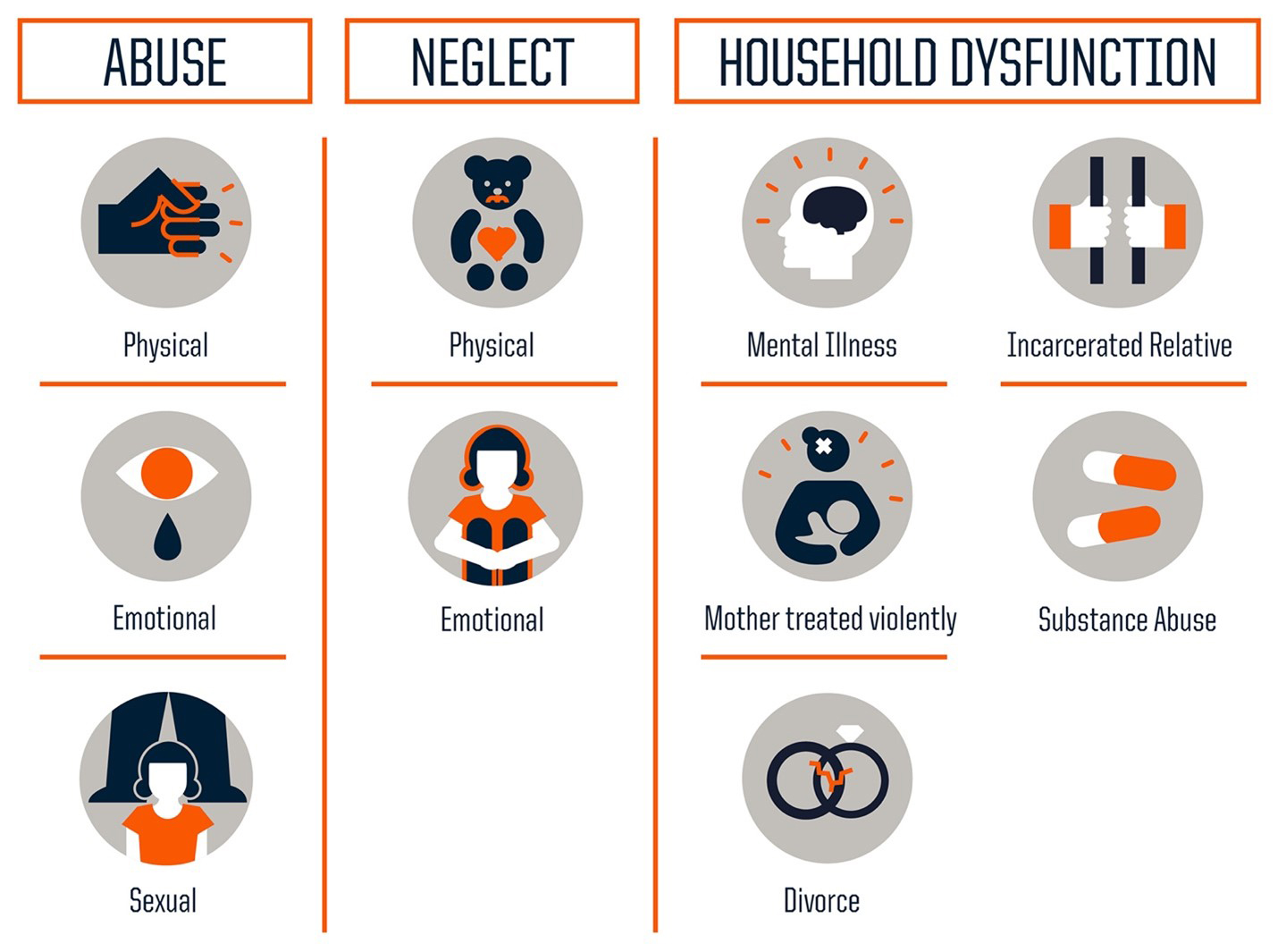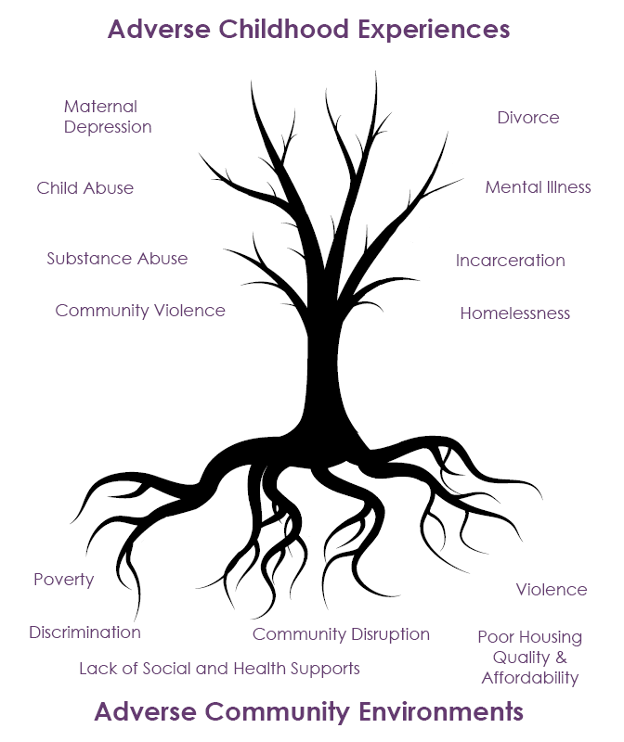ACEs are potentially traumatic events that occur in childhood and are linked to chronic health problems, mental illness, and substance misuse in adulthood. ACEs include:
- Experiencing violence, abuse, or neglect
- Witnessing violence
- Having a family member attempt or die by suicide
ACEs also include aspects of the child’s environment that can undermine their sense of safety, stability, and bonding, such as growing up in a household with:
- Substance misuse
- Mental health problems
- Instability due to parental separation or household members being imprisoned
For more information, visit the CDC website on Adverse Childhood Experiences
We know that children who have some types of adverse (negative) childhood experiences are at risk for having negative physical and/or mental/behavioral outcomes. These ACES were originally in a public health population survey and only looked at harm in the child’s home environment, mostly related to the caregiver relationship.
More recent studies have included ACEs that have happened in a child’s broader environment including their neighborhood, school, and community settings. Some factors, such as racism and discrimination, may cut across a child’s home and the broader ecosystem. That is why all organizations that work with children and families must strive to be anti-racist.
Impacts of ACEs on children
These events do not affect all children the same way, and we have a great deal of information on how to reduce the negative impact of ACEs or trauma on children.
Learn more about the balancing effect of positive factors.
References
- Estimated Proportion of Adult Health Problems Attributable to Adverse Childhood Experiences and Implications for Prevention — 25 States
- Relationship of childhood abuse and household dysfunction to many of the leading causes of death in adults.
- A New Framework for Addressing Adverse Childhood and Community Experiences: The Building Community Resilience Model


